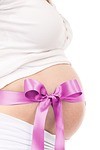A Quantitative pregnancy blood test will provide the correct level of HCG hormone in the bloodstream. In this way, the doctor is able to pinpoint the exact age of the fetus and the test also helps the physician to keep tabs on the progress of the pregnancy. It provides much more information than an over the counter pregnancy test - also known as a qualitative pregnancy test.

Quantitative Pregnancy Blood Test
The purpose of a quantitative pregnancy blood test is to determine the health of the pregnancy and measure the pregnancy hormone (HCG) levels in the bloodstream.
Pregnancy Blood Test Levels
HCG Blood Levels Measured With A Quantitative Pregnancy Blood Test
The purpose of a quantitative pregnancy blood test is to measure the pregnancy hormone human chorionic gonadotropin (HCG) level in the bloodstream. Generally the hormone is detected in the blood approximately 7-12 days after ovulation. The hormone contains corpus luteum (what is left of the follicle after the egg bursts out of it). It is responsible for the production of progesterone, useful in thickening the lining of the uterus to enable a healthy, safe pregnancy. When HCG is not present, the lining of the uterus will start to shred and the menstruation cycle begins all over again.
Exceptionally high or low levels of HCG may indicate multiple pregnancies or a miscalculated pregnancy date if the level is high. When the level is low, it could indicate a miscarriage, erroneous pregnancy date or an ectopic pregnancy (abnormal pregnancy occurring outside the womb).
Types of Pregnancy Blood Tests
1. Qualitative pregnancy testing helps to indicate whether the HCG hormone is present in the blood or not. In other words, it either affirms the pregnancy or negates the idea. The test itself is similar in nature to the home pregnancy tests women conduct with the help of an over-the-counter pregnancy kit.
2. Quantitative pregnancy testing will provide the correct level of HCG hormone in the bloodstream. In this way, the doctor is able to pinpoint the exact age of the fetus and the test also helps the physician to keep tabs on the progress of the pregnancy.
Pregnancy blood test
The test itself is quite simply performed by drawing blood in a syringe from a vein in the hand or forearm. The blood is sent to the lab to test the HCG hormone level in the blood. Test results generally take 48 hours to be finalized, but this can vary depending on the lab doing the testing. At times, when the test is conducted too early, it may not be possible to determine the HCG level with the quantitative pregnancy blood test.
The pregnancy blood test is considered more effective in determining pregnancy than a urine test. The test is recommended for women who are under four weeks pregnant. For a woman to know she is pregnant before taking the test, there are certain symptoms such as pelvic discomfort, missed menstruation, vomiting and tenderness in the breasts.
Pregnancy blood test results
The qualitative test shows the presence of the HCG hormone in the blood; for the pregnancy to be confirmed, a reading of 5 mIU of HCG hormone presence in the blood is required. This level of HCG can generally be seen very soon after conception takes place. Doctors may recommend several quantitative tests during the pregnancy to check on the progress of the pregnancy.
HCG hormone levels typically should double every second day of the pregnancy for a period of four weeks. By the seventh week of gestation the hormone takes 3.5 days to double. When the HCG hormone level is not doubling as expected, it may be an indicator that the pregnancy is in trouble.
Pregnancy Tests Online
 |  |  |
| Clearblue Early Digital Pregnancy Tes... | Clearblue Rapid Detection Pregnancy T... Only $7.98 | First Response Early Result Pregnancy... |
More Information on Pregnancy and Pregnancy Blood Tests
You might also like
Why Do People Eat Placenta?Somewhat trendy in the 60s and 70s, eating the placenta after childbirth supp...
Full Body Pillows for Pregnancy and Beyond - The Top 5Need Extra Comfort and a Bit of Support a Night? Here's a Review of the 5 Bes...





Comments